South Africa
The Russian and Chinese foreign ministers are due to meet their counterparts from the BRICS economic bloc in Cape Town on Thursday, ahead of a larger summit of leaders of developing countries in South Africa in August, which Russian President Vladimir Putin may attend then. that he is indicted by the International Criminal Court (ICC).
South Africa hinted, without saying so explicitly, that it would not arrest Mr. Putin if he decided to go to the main BRICS summit in Johannesburg, despite being required to do so as a signatory to the ICC Treaty of Rome.
The BRICS are a bloc of emerging economies made up of Brazil, Russia, India, China, and South Africa, and their leaders, including China's Xi Jinping, have been invited to the summit which takes place will be held from August 22 to 24.
Any trip by Mr. Putin - and the Kremlin has not said whether he will take part - would draw more attention to relations between South Africa and Moscow. The West clearly fears that Africa's most developed economy will align itself with Russia and drag other developing countries in its wake, at a time of heightened global tensions.
Those concerns came to light earlier this month when the US ambassador to South Africa called a press conference in Pretoria and accused the country of supplying arms to Russia for its war in Ukraine. The South African government has denied the allegation, but a visit by a Russian freighter to South Africa's main naval base near Cape Town in December is being investigated.
While South Africa has yet to make its official position known regarding the arrest warrant for Mr. Putin, its foreign ministry said on Tuesday that people traveling for Thursday's meeting of foreign ministers of the BRICS and the leaders attending the main summit in three months would enjoy standard diplomatic immunity.
However, these privileges "do not invalidate any warrants of arrest that may have been issued by an international court against a conference participant", Foreign Ministry spokesman Clayson Monyela said. , in an indirect allusion to Mr. Putin.
This means that the ICC arrest warrant would still apply if Mr. Putin surrenders in August, even if South Africa is highly unlikely to arrest him. The Russian president has not visited any country that is a signatory to the International Court's treaty since he was indicted in March for war crimes related to the kidnapping of children in Ukraine.
Away from Mr. Putin, the main BRICS leaders' summit could be one of the most important in the bloc's short history, analysts say. Progress could be made on two crucial issues. The BRICS could be expanded to new members such as Saudi Arabia, Iran, and the United Arab Emirates. The bloc could also adopt a resolution on the creation of a BRICS currency.
These movements within a group including Russia and China could be seen as "a direct economic challenge for the United States", said William Gumede, associate professor at the School of Governance at the University of the Witwatersrand at Johannesburg and BRICS analyst.
"The BRICS could look very different...and (they) would change global power dynamics," Gumede said.
BRICS officials said in April that at least 19 countries - including major oil producers Saudi Arabia, Iran, and the United Arab Emirates - had applied for membership. South African Foreign Minister Naledi Pandor also confirmed that a BRICS currency would be discussed.
Talks could begin this week when Russian Foreign Minister Sergei Lavrov and Chinese Foreign Minister Qin Gang will meet with Mr. Pandor and other counterparts from Brazil and India.
Although the introduction of a common currency in countries with very different economic structures presents complications, Mr. Gumede said that a formal decision in this direction could be considered a major "political statement" and an attempt to initiate the "de-dollarization" of certain regions of the world.
The United States "should respond, one way or another," Gumede said.



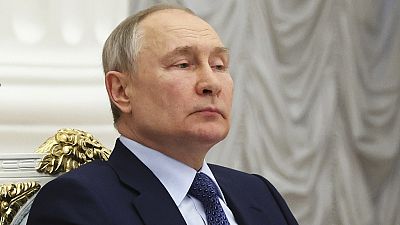

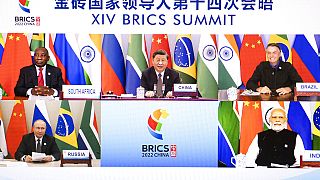
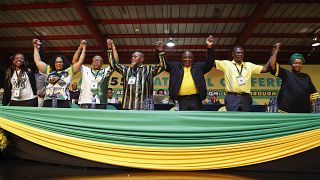
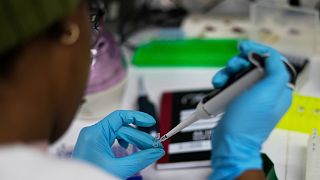

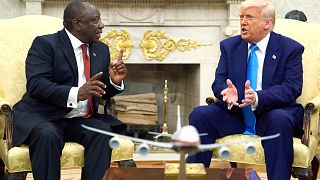


01:07
Trump threatens Russia with tariffs if no Ukraine peace deal reached within 50 days
Go to video
ICC warns of a dire humanitarian crisis in Sudan as the war rages on
01:37
Top European court delivers series of damning rulings against Russia
Go to video
Nigeria snubbed at White House summit, opposition blames Tinubu
01:49
BRICS summit ends on health issues and role of global south countries
01:00
Russian minister found dead hours after being dismissed